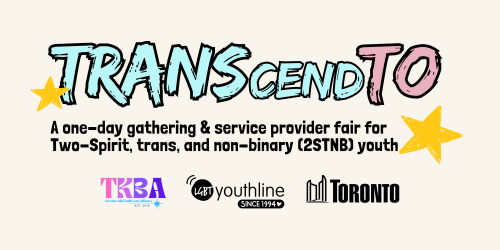
The Access Plan builds on the City’s Toronto Youth Equity Strategy, which identified key issues faced by youth, including gender-based violence experienced by gender-diverse youth. The Access Plan’s recommendations and activities will be implemented between 2024 and 2027.
On June 6, 2025, in partnership with LGBT Youthline and the Toronto Kiki Ball Alliance, the City hosted its first-ever symposium for Two-Spirit, trans and non-binary (2STNB) youth. More than 150 gender-diverse young people took part in a day of learning, community and celebration. Attendees participated in peer-led workshops on systems navigation, self-defence, wellbeing and more. They accessed services including free gender-affirming haircuts, makeup tutorials and advice about identity documents. 25 community organizations shared information on their programs and services with attendees at the service provider fair. The day was closed out with a kiki ball where the competition was fierce, and trans youth contestants brought the realness.

Two-Spirit, trans and non-binary (2STNB) youth in Canada experience harassment, discrimination and violence at higher rates than cisgender youth.
Canadian trans and non-binary youth have reported avoiding a range of community spaces for fear of harassment or harm:
The City’s Street Needs Assessment shows that gender-diverse youth are overrepresented in Toronto’s homeless population, and they become homeless at a younger age than their cisgender counterparts:
The impacts of these experiences on the health and wellbeing of youth are profound:
These highlights from research and consultations to support the development of the Access Plan demonstrate the urgency and timeliness of work to address systemic transphobia.
Many different terms are used by people to describe their genders, and these terms change over time. The City uses “Two-Spirit, trans and non-binary (2STNB)” and “gender-diverse” to refer collectively to the diverse communities that we hope will benefit from the Access Plan.
This includes but is not limited to those who used the following terms to describe themselves:
agender, androgyne, androgynous, bigender, demiboy, demigirl, enby, FTM, genderfluid, genderqueer, genderf*cked, gender expansive, gender non-conforming, GNC, Indigiqueer, intergender, man (of trans experience), MTF, multigender, netrois, non-binary, NB, pangender, polygender, trans, transgender, trans man, trans woman, Two-Spirit, two-spirited, woman (of trans experience).
The City of Toronto is not responsible for the content of the external websites listed on this page. The City of Toronto does not endorse, approve, or guarantee the accuracy of the information available on these websites. The views expressed on external websites are those of the author(s) and do not necessarily represent the views of the City of Toronto.